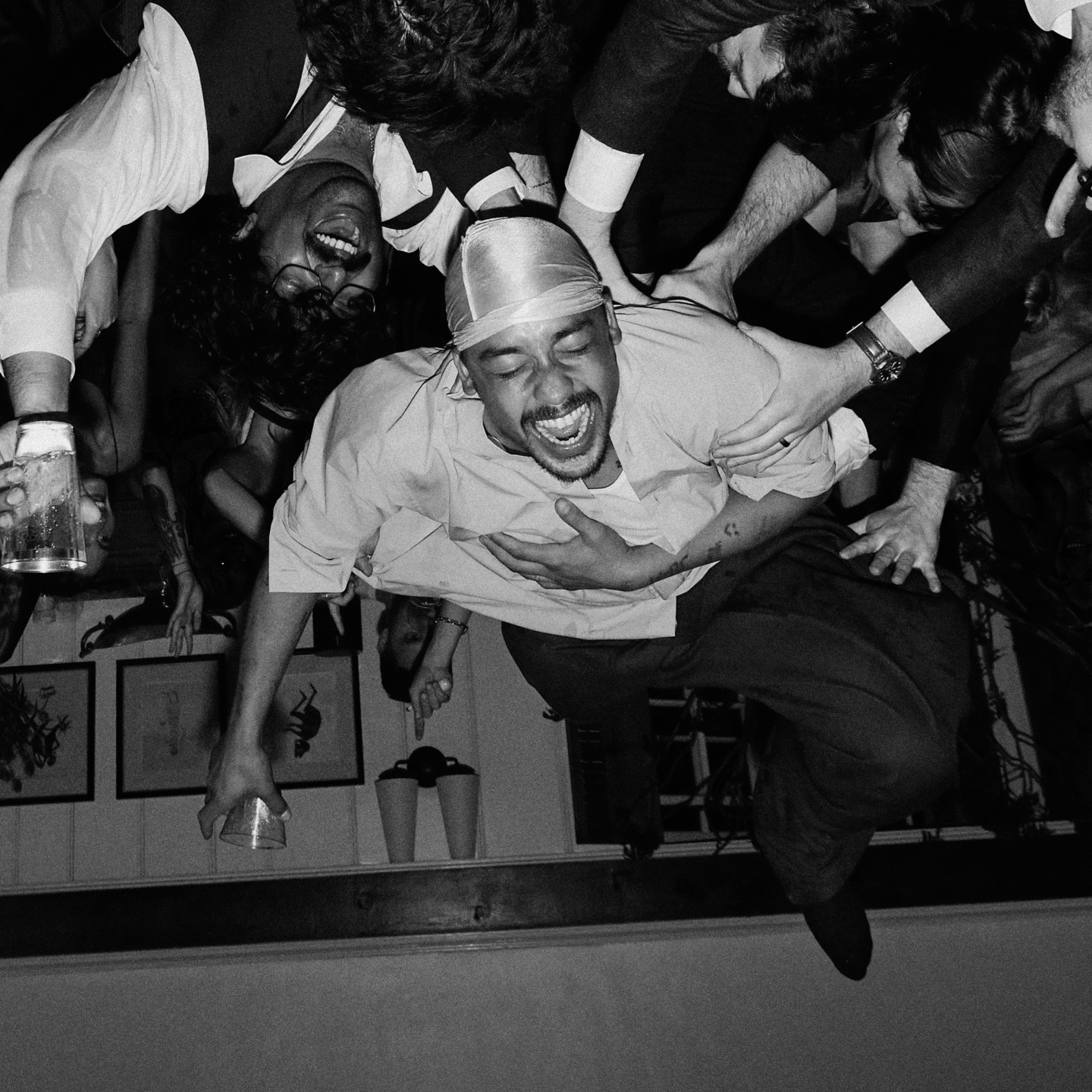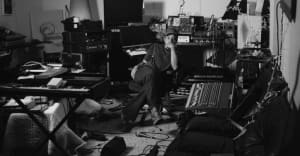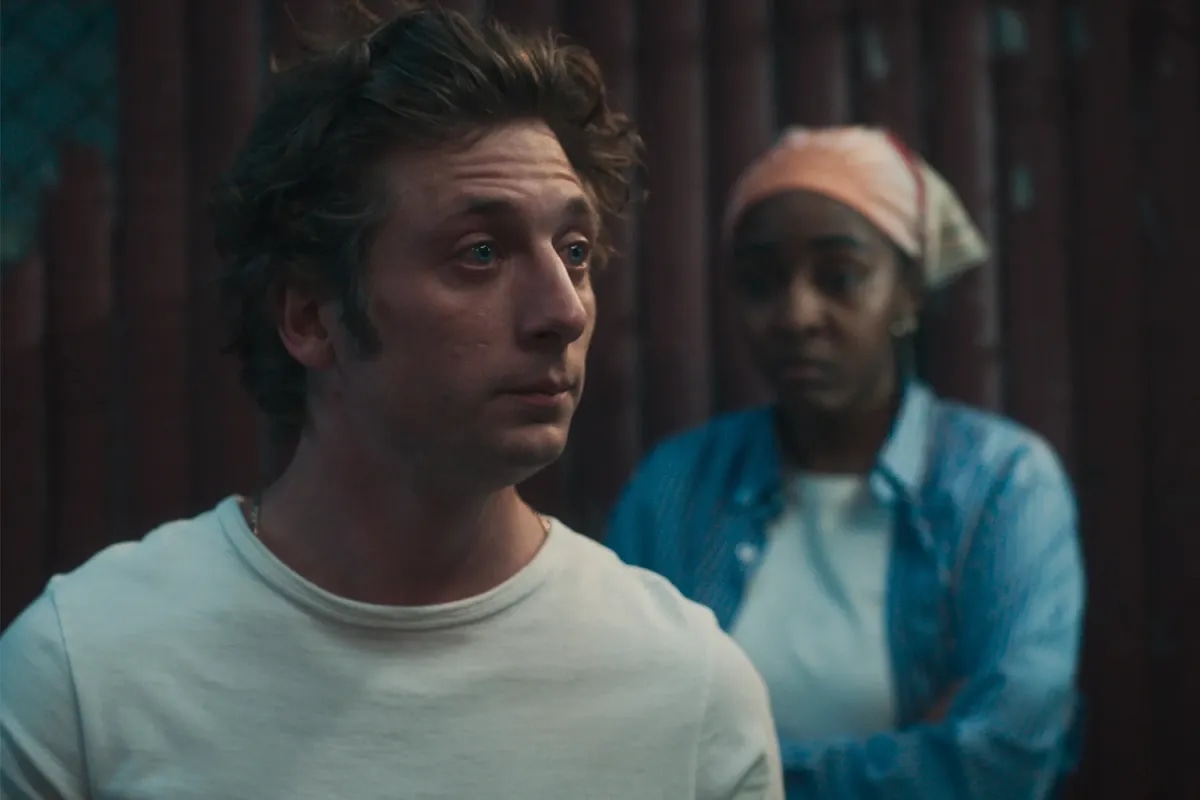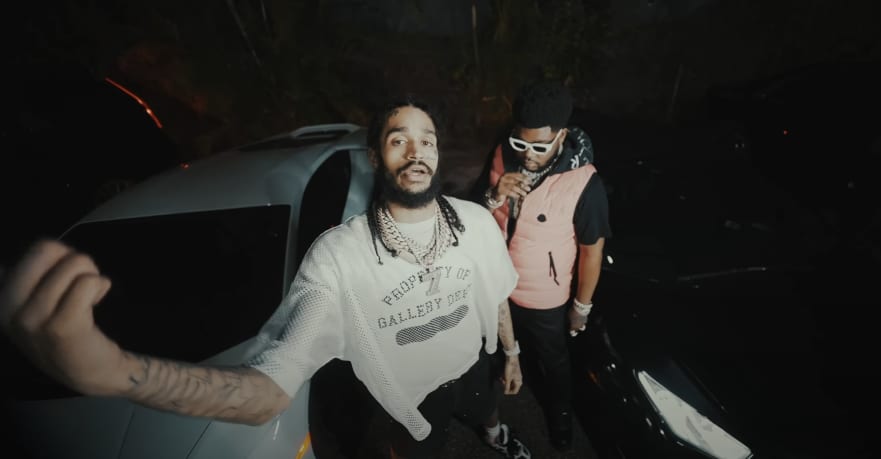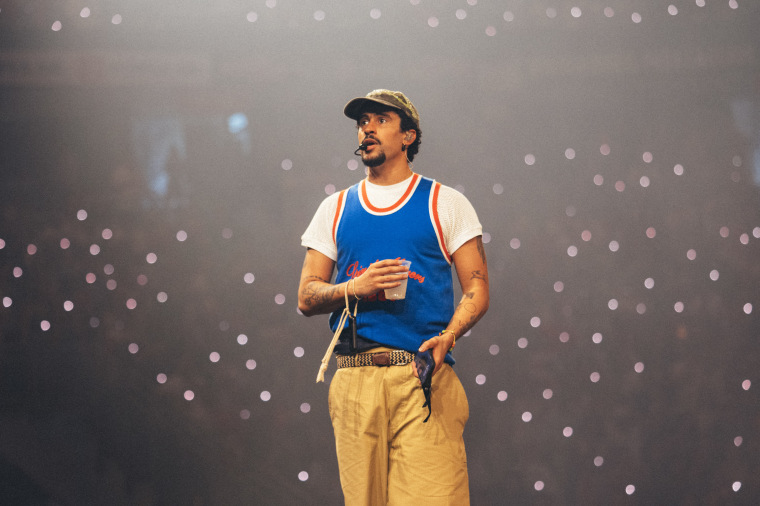Baby rips up pop and starts again”>
Dijon Duenas approaches his songs with a chaotic desperation. His debut album Absolutely felt raw and messy by design with the Los Angeles based singer, songwriter, and producer pursuing a version of pop music ready to explode at any moment. The music was full of in-the-moment decision-making and off-the-cuff emoting; vocal takes were recorded in the wee hours of the morning, his voice hoarse from long nights of drinking. “I would love to engage in the pop world with some of the more messy, far out sonic choices,” he said in an interview with The FADER.
On his second album Baby, surprise-released last week, Dijon holds to that guiding principle, pressing further into the tangled weirdness and outré experimentation that shaded the corners of Absolutely’s tender vulnerability.
From the opening moments of this new record, samples stammer and splutter, abstract electronics wheedle and ooze. While you could occasionally hear this in Dijon’s earliest music, the collagist production is foregrounded on Baby. “Another Baby!” is in some ways the kind of song Dijon has been making his whole career, a song of devotion and a tender come-on, relayed with wide-eyed, ecstatic gasps. But he’s also never made anything quite like it—the backbone of the track is made up of a stuttering vocal sample, from which he hangs blown-out guitars, celestial synths, and all manners of less identifiable electronics. Like much of the record, overstuffed to the point of unease—a kind of kitchen-sink maximalism that only underscores the emotions Dijon likes to work with.
This approach feels deeply intertwined with the subject matter of Baby. Like a lot of his music, the record is full of love songs— the record is dedicated in part to his wife Joanie—but it also finds him grappling with the intensity of new fatherhood. Love is braided with fear, pain, and doubt that lurk in the shadows of virtually every song on the album, the collages of samples and erratic electronics adding anxiety and an unsettled energy to even the most joyous songs.
Baby is music for when everything feels like a little too much—for when you don’t know whether to laugh or cry, so you do both. And you don’t hold back even a bit.
The record was crafted at home, in “isolation” with his family, and it’s reflective of the single-minded concentration of such an experience—packed full of the thoughts that result when you’ve had time to dwell a little too long, tracing the contours of every feeling, letting yourself get spooked. He writes, as ever, in simple, straightforward terms about matters of the heart, but his frayed delivery complicates these truths. It’s apparent in small moments on the title track, a swooning song addressed to his child that culminates in a whispered vow of protection: “If I could take your pain, you know I would.” The joy of new life and the darkness of pain and loss must coexist—for every blessing, there’s the threat that it could be taken away from you.
In other places, he offers the true romantic’s response to these moments of disquiet and fear: redoubling his commitment and reaffirming his devotion. “Yamaha” and “FIRE!” about love and desire that last, tried and true subject matter for pop music. But they ring even truer thanks to Baby’s deliberately unrestrained production – overseen by Dijon and a cast of collaborators which includes Michael Gordon a.k.a. Mk.gee, Andrew Sarlo, and Henry Kwapis Each strained vocal line is cutting through layers of precariously arranged instrumentation and foggy sampledelia; each lyrical revelation feels hard-won as a result, as if he’s fought his way to the surface of his own music, screaming about the love that he’s wrestled from the wilderness.
Over the past few years, as he once dreamed, Dijon has had the opportunity to push the pop world closer to his vision of what music should be. He made an appearance on Bon Iver’s 2025 album SABLE, fABLE. He garnered credits on Justin Bieber’s SWAG while clearly serving as an inspiration even on the songs he didn’t explicitly touch. Those efforts showed that his approach has a place on the charts, but they also demonstrated how little Dijon holds back on his own records. SWAG owes a clear debt to Dijon’s freewheeling emoting, but Baby goes so much further. He’s willing to embrace a sound that’s as ugly, tumultuous, and unwieldy as it is beautiful. Baby is music for when everything feels like a little too much—for when you don’t know whether to laugh or cry, so you do both. And you don’t hold back even a bit.

